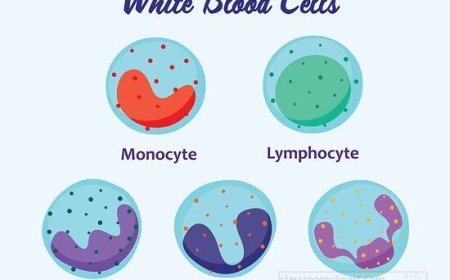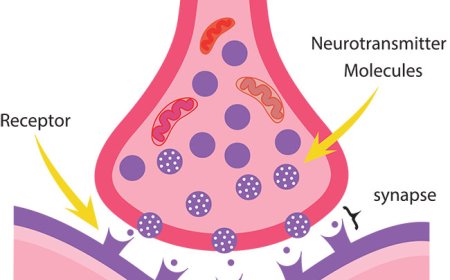What Is the Urinary System? A Complete Guide for Students
Learn what the urinary system is, how it works, and why it’s essential. Understand how kidneys, the bladder, and other organs remove waste and keep your body in balance.
💧 What Is the Urinary System?
🧠 Introduction: The Body's Natural Waste Filter
Imagine if your home had no trash can, no sink drain, or no bathroom. Where would all the waste go? That’s what your body would be like without the urinary system.
The urinary system, also called the excretory system, is your body's way of getting rid of waste, especially liquid waste like extra water, salts, and toxins. Without it, harmful substances would build up in your blood and organs, making you sick.
This system doesn't just get rid of waste—it also helps your body stay in balance, or homeostasis, by:
Keeping your fluid levels just right
Controlling important chemicals like sodium and potassium
Regulating your blood pressure and pH levels
So when you go to the bathroom, it may seem simple—but your urinary system has already done a ton of important work behind the scenes!
🚰 Why the Body Needs a Urinary System
Every cell in your body creates waste just by doing its normal job. That waste travels through the blood to your kidneys. The urinary system is responsible for:
Removing harmful chemicals from the blood
Getting rid of extra water your body doesn’t need
Helping keep the right amount of minerals and salt
Controlling how much acid is in your blood
Without this system, waste would pile up in your body and become dangerous—kind of like a garbage truck that never gets emptied!
🧍♂️ Meet the Organs of the Urinary System
The urinary system has four major parts, and each plays a key role in keeping you clean and balanced:
1. Kidneys (2) – The Master Filters
Location: Left and right side of your lower back
Function: Remove waste, balance fluids, and filter your blood
Inside each kidney are nephrons, tiny filtering units that clean about 50 gallons of blood per day
Also help regulate blood pressure and produce important hormones
2. Ureters (2) – The Plumbing Pipes
Thin tubes (about 10–12 inches long)
Function: Carry urine from each kidney to the bladder
Use muscles to squeeze urine downward in small waves (like squeezing toothpaste)
3. Bladder – The Holding Tank
Hollow, stretchy organ that stores urine
Grows larger as it fills, holding up to 500 mL (about 2 cups) of urine
Has stretch receptors that signal your brain when it's time to go
4. Urethra – The Exit Tunnel
The small tube that carries urine from the bladder out of your body
Different lengths: about 1.5 inches in females and 8 inches in males
Surrounded by muscles (sphincters) that open and close to let urine out
🔬 How Urine Is Made: Step-by-Step
Here’s how your body makes urine, starting from your blood:
Step 1: Filtration
Blood flows into the kidneys through the renal artery
Nephrons filter out water, urea (waste from protein), salts, and toxins
Step 2: Reabsorption
The body takes back anything it still needs: water, sugar, minerals
Only the waste stays in the fluid to become urine
Step 3: Collection
Urine flows from the nephrons into collecting ducts
Then it travels down the ureters to the bladder
Step 4: Storage and Release
The bladder stores urine until it’s full
Your brain sends signals to relax muscles
Urine exits through the urethra
You make about 1 to 2 liters of urine a day, depending on how much water you drink!
🧪 What’s in Urine?
Urine is mostly made of water, but it also contains:
Urea – waste from breaking down proteins
Creatinine – waste from muscle activity
Excess salts and minerals
Small amounts of acids or medications
The color of your urine can tell a lot about your health:
Light yellow = hydrated and healthy
Dark yellow = drink more water
Red, cloudy, or smelly = see a doctor
⚖️ How the Urinary System Keeps Balance (Homeostasis)
Your body needs to stay in balance to work right. The urinary system helps control:
Water levels – removes or keeps water depending on what you need
Salt and minerals – like potassium, sodium, and calcium
Blood pressure – kidneys release renin, a hormone that helps control it
pH levels – keeps your blood from becoming too acidic or too basic
This balance is called homeostasis, and it’s one of your body’s most important goals!
🧠 Vocabulary List
Term Definition
Urinary system Organs that remove liquid waste and balance water in the body
Kidneys Organs that filter blood and make urine
Ureters Tubes that carry urine from kidneys to the bladder
Bladder Organ that stores urine until it is released
Urethra Tube that carries urine out of the body
Nephron The tiny filter unit inside the kidney
Urea Waste made from breaking down protein
Filtration The process of cleaning blood by removing waste
Reabsorption When the body takes back water and nutrients it still needs
Homeostasis A healthy balance inside the body (fluids, temperature, pH)
❓ Interactive Quiz: What Do You Know?
1. What is the main job of the urinary system?
A. Make food
B. Carry oxygen
C. Remove waste from blood and control fluids
D. Fight infection
2. What organ stores urine?
A. Ureter
B. Kidney
C. Bladder
D. Lung
3. What are nephrons?
A. Brain cells
B. Tiny filters in the kidneys
C. Nerves in the bladder
D. Muscles in the urethra
4. What does healthy urine usually look like?
A. Blue
B. Light yellow
C. Black
D. Red
5. How many kidneys does a person usually have?
A. 1
B. 2
C. 4
D. 0
🟢 Answers: 1-C, 2-C, 3-B, 4-B, 5-B
⭐ Kid-Friendly Summary
Your urinary system helps your body stay clean and balanced. It filters out waste from your blood and turns it into urine. The kidneys do the filtering, ureters move the urine, the bladder holds it, and the urethra lets it out. It might seem simple, but this system works all day, every day to keep you healthy. So drink lots of water, and thank your kidneys for their hard work!
🤯 Fun and Interesting Facts
Kidneys filter your entire blood supply about 60 times per day
Each kidney contains about 1 million nephrons
The average person urinates about 6–8 times a day
A healthy bladder can stretch to hold up to 2 cups of urine
Astronauts on the International Space Station recycle their urine into clean drinking water!






















































